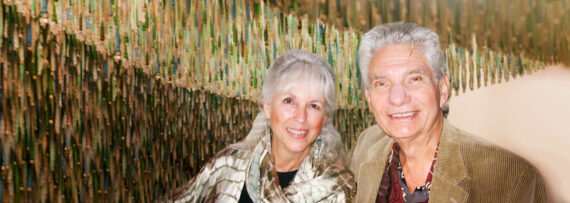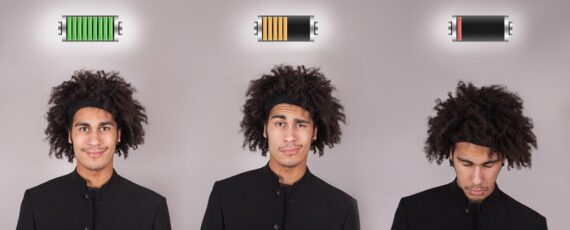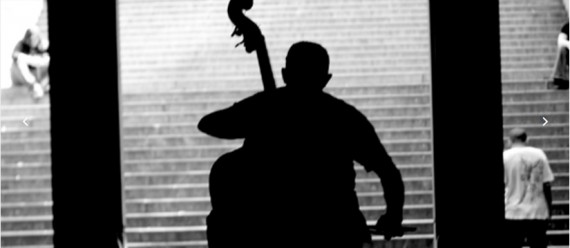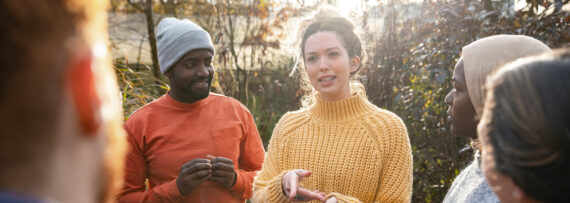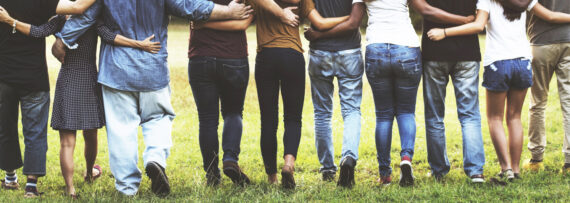By Hal Stone Ph.D. and Sidra Stone Ph.D.
This article is about judgments and their effect on relationship. Without question, ongoing judgment is the most damaging aspect of relationship. There is usually one or more family member who carries the judgment and other family members who receive it. This judgment may be silent or expressed. In any case, when allowed to fester over time it will do its damage and relationships will suffer and deteriorate accordingly. In primary relationships where people are living together it is difficult to imagine anything more destructive to the relationship over time than the existence of on going judgment.
Many people don’t even know that they hold judgments. They have had them for so long that they are totally identified with them and don’t see them as separate from themselves in any way. (In the early days of psychology they used to refer to this identification with a thought or feeling as being ego-syntonic.) Conversely, some people are raised in families where they were judged harshly when they were growing up. As these move into adulthood, they are so accustomed to being criticized that they don’t even realize that they are being beaten up constantly by other peoples’ judgments of them (as well as by the internal judgments held by the Inner Critic and/or the Inner Patriarch). We have discussed this at great length in our book Embracing Your Inner Critic and in Sidra’s book on the Inner Patriarch, The Shadow King.
In considering the meaning of judgment in relationship, there are four fundamental psychological principles that we will be discussing in this article.
- Whomever we judge or whatever we judge is an expression of one or more of our disowned selves.
- In addition to the disowned selves, underlying every judgment is an underlying vulnerability of which we are unconscious and/or unable to communicate.
- So long as these disowned selves remain disowned, they will return over and over again to haunt us in one or more of our relationships. Relationship is the playground of the intelligence of the universe that ultimately forces us to embrace all of our selves.
- As a corollary to all of the above, we can say that the people, things, objects or ideas that we judge the most intensely have the possibility of becoming our most important teachers—once we know how to work with our judgments.
DEFINITIONS
Before we continue our discussion of judgment we would like to present some basic definitions for those readers who are new to our work on the Psychology of Selves.
Primary Selves
In the growing up process all of us are creatures of conditioning and the personality that develops is a function of this conditioning. We either identify with the ideas, emotional responses and psychological training that are given to us or we rebel against them. There are times that we may do some combination of both—either simultaneously or sequentially (at different times in our lives). Primary Selves is the name that we give to the primary pattern of behavior, thought and emotional response that we are identified with at a particular time in our life. All of us are identified with our primary selves until we begin the process of separating from them. There is no escaping this reality, not for any of us. In Jungian terminology, the primary selves would determine the nature of the persona.
Disowned Selves
When we grow up in a family, we identify with certain selves. This means that automatically we reject the opposite selves. Thus if a woman grows up identified with being a giving and maternal kind of woman, then her disowned self will be the opposite energy, her more selfish and self serving interests. Disowned selves then carry our repressed psychological and emotional content. They are equal and opposite of the primary selves.
In Jungian terminology, the shadow would be the equivalent of the disowned selves so long as it is understood that shadow refers to repressed content that can be both light and dark.
Projection
Unconscious contents in us are constantly jumping out of us and landing on other people, objects and ideas. You walk by a store that carries Indian jewelry. You see a squash blossom necklace and you feel that you have to have it, that it belongs to you, no matter how expensive it may be. You are filled with all kinds of new feelings as you gaze at it. You have projected an aspect of your own spiritual nature onto the necklace. It may actually be a beautiful piece of jewelry, but the magic that you give it is the magic of your own unrealized spiritual/ creative nature. What does this look like?
A very busy businessman buys a World War II jeep and spends a fortune fixing it up. It drives terribly and is always breaking down and he has a love/hate relationship to it. What has compelled him to buy this jeep and spend a fortune trying to make it work for him? He has projected onto the Jeep his disowned adventurer and his own playful child. His primary self system is the Pusher and all its allies. The Jeep is no longer a Jeep. It is, rather, a playground for the neglected playful and adventurous parts of himself that have been buried for a good many years and that he is trying to contact by owning this Jeep. The problem is that it is still a World War II Jeep and not a playground, and what he yearns for continues to elude him and to live in projected form, outside of himself.
A man falls in love with a spiritual woman who is a disciple of a well-known guru. He judges her constantly for her spirituality. She finally leaves and he is bereft. He yearns for her. After a few months he enters into a new relationship with a woman who is part of the same spiritual community as his first partner. He is projecting his own disowned spiritual nature onto the woman. He will continue to do this until he is able to begin to integrate his own unconscious spiritual nature. Until then, the judgments will continue along with the intense attractions. Such projections are one of the key elements in keeping psychotherapists in business. With therapists, one projects positive emotional, intellectual and spiritual contents onto the therapist in the hope that ultimately these qualities will become a part of one’s own nature.
Projection is like a bridge that reaches from us to the other person or object. We then are able to walk across this bridge. And once we are on the other side, we find not just the other person, but we also find our own disowned selves that have crossed the bridge with us and have been— up until now—living only in the other person.
Judgment
 When we talk about judgment in this context, we are thinking of judgment as a strong negative reaction that we have to someone or something. Something is wrong with the other person. Judgments are connected to the autonomic nervous system and if we tune into our bodies we can feel some level of emotionality that underlies the judgment. Some people have a self we call “The Judge” whose specialty is judging others. Judgments about ourselves that come from within, we see as coming from the Inner Critic. Both kinds of judgment are based on a disowned self although most people who make judgments tend to think of their judgments as objective realities. All judgments basically come from the primary selves and reflect their rules of behavior!
When we talk about judgment in this context, we are thinking of judgment as a strong negative reaction that we have to someone or something. Something is wrong with the other person. Judgments are connected to the autonomic nervous system and if we tune into our bodies we can feel some level of emotionality that underlies the judgment. Some people have a self we call “The Judge” whose specialty is judging others. Judgments about ourselves that come from within, we see as coming from the Inner Critic. Both kinds of judgment are based on a disowned self although most people who make judgments tend to think of their judgments as objective realities. All judgments basically come from the primary selves and reflect their rules of behavior!
Discernment
Discernment is an objective evaluation of someone or something that is not based on a disowned self. There is no negative valence to the evaluation, no intense negative reaction. Judgments can be transformed into discernments by the procedures described in this article.
The Ego
The ego is the term developed at the turn of the century, primarily through psychoanalytical theory. It was originally described as the executive function of the psyche, the part of us that sails the ship. What we understand now with the Psychology of Selves is that the ego is simply the group of primary selves that is running the personality. We call these the “Operating Ego”.
When spiritual seekers talk about “getting rid of the ego,” they are seeing the ego as essentially negative and they want to get rid of it because they feel it interferes with genuine spiritual development. In fact, the primary self grouping is very important to our well being and our ability to use power in the world. The trick is to learn to not be identified with it. When you try and “get rid of the ego” you are in danger of becoming a victim and losing the ability to be effective in the world.
The Aware Ego
Whenever we separate from a way of thinking or acting we are no longer identified with that pattern of behavior. We now have an Aware Ego in relationship to that pattern (to the primary self or selves). The Aware Ego is a process that develops as we unhook from our primary selves and become aware of and experience our disowned selves.
The Aware Ego process is always shifting and can be eliminated if a strong primary self regains control for some reason (usually something to do with vulnerability). It is the Aware Ego process that begins to serve increasingly as a coordinating agency to regulate the different selves. In particular it is what enables us to embrace opposites and learn to work with them in our relationships.
The Aware Ego is not Awareness but rather mediates between Awareness and the many Selves. Awareness witnesses activity but does not live life. It is the Aware Ego that keeps one foot in the world of Awareness and the other foot in the world of the Selves and thus is in a position to make proper choices for living in the world.
The Aware Ego is not the Self as used in Jungian terminology. The Self in Jungian terms refers to those elements of the psyche that are beyond the personality layer. The Aware Ego embraces the personal level on one side and the Self on the other. You cannot pin down the Aware Ego because it isn’t a thing; it isn’t a self. It is a coordinating mechanism that is born during the early stages of the transformational process that has the job of surrendering to, and mediating, all of the selves.
The Operating Ego
As we separate from the primry self system, we develop some ability (the Aware Ego) to use these primary selves without being under their control. We begin to be in charge of the horses that pull the chariot instead of them being in charge of us.
As this new ability develops, there are still elements of the primary self system that direct our lives, usually without our knowledge. As we did earlier, we continue to call the set of primary selves the operating ego. This operating ego is the group of primary selves that continues to operate in us even as our Aware Ego develops. However, loses power as the Aware Ego grows stronger.
Psychological Boundaries
Psychological Boundaries refer to the ability to say “no” and “” appropriately. To discover where you may have lost boundaries, ask yourself these two questions: “What are you doing that you don’t want to do?” and “What aren’t you doing that you do want to do?”
If you are a responsible type of person and are always giving up your own time to help others, then you will suffer from a loss of boundaries because you are not making a real choice about what you are doing. Instead, it is the primary “Giver Self ” that is making the choice for you. When we lose our boundaries, a judgmental voice often emerges in us towards the person we perceive as invading our boundaries. A lack of boundaries also opens us and actually enhances the judgmental side of another person. Clear boundaries made with real choice reduce the need for judgmental reactions.
1. ALL JUDGMENT IS BASED ON YOUR DISOWNED SELVES
Whatever you judge is a disowned self. Whatever you hate is a disowned self. Whatever drives you crazy about your partner is a disowned self. On the other side, whatever you yearn for and overvalue is also a disowned self. “My God”, you say, “My stepmother was the witch from hell. Do you mean to tell me that she is my disowned self? No way am I going to try and embrace her. No way am I ever going to try to be like her. She is pure evil!” So you say and it well may be true, but that doesn’t change a thing. The intensity of your negative reaction lets us know with absolute clarity that your stepmother is your disowned self and that she has a very important kind of medicine that you need to complete yourself.
How does this happen? You grow up in a family system that is very painful to you. Your father remarries and his new wife is the opposite of your real mother. Your real mother was passive, loving and giving and people could take advantage of her. Your father separates from her when you are quite young and your stepmother enters the picture. She is everything your real mother wasn’t. She is selfish, withholding, very sexual, cunning, manipulative and quite closed on an energetic level. You push off from her and identify with your mother.
Because you are so hurt by the stepmother on so many occasions you turn off all positive feelings towards her and enter into primary allegiance with your own mother with whom you identify totally. So you become a much more loving and caring person. You are wide open energetically (with few boundaries) and you tend to judge anyone who behaves impersonally (unless you first fall in love with that person). You are simply not going to behave the way your stepmother does! Your primary selves are like your mother’s and possibly even your father’s. They (your primary selves) are what judge your stepmother. Aware Egos do not judge. Primary Selves do the judging.
Your first task then is to unhook from the primary self or selves. This means separating from the nice one, the loving one, the serving one, the open one and the giving one. This does not mean getting rid of these selves and becoming the wicked witch from the east. It means separating from them and learning to use them consciously and with choice.
The second step is recognizing that the wicked witch is a part of you that you have buried. More accurately, it is a part of you that your primary self has buried. In Voice Dialogue we ultimately allow these voices to speak so that you can become aware of, and experience, their absolute reality. Ultimately you will learn to use witch energy in a conscious way. The Aware Ego will then be able to spread its arms and embrace both the loving/caring/open energy on one side and the more selfish/ self serving/ dark energy on the other side.
The rewards of this are great. If you live in the light then you can only get on with people of the light. When dark energies come your way you are lost. By learning to use the stepmother’s energy you gain the power to deal with darkness.
So pay attention to your judgments. Start today. Start at this moment. Write down every judgment that you have in a small pad. Once you get the hang of it you will be amazed at how much more accelerated your own consciousness process will be. Remember that we are not advocating becoming the person that you judge. We are simply asking you to be reminded of the fact that the judgments are coming from your primary or disowned selves and that you have a method here for integrating your disowned selves in a very remarkable way.
Living in constant judgment, whether you are the judge or the recipient of the judgment, is like living in a body of water that is very dirty. As you step out of the world of judgment you step into ever-cleaner water. Our world desperately needs people who can step out of these dark ponds and help themselves and others move towards clarity.
Many spiritual people judge judgment and try very hard to kill it. This simply means that, for them, judgment is a disowned self. You cannot get rid of judgment by trying to act loving. All they do then is drive the judgments underground where they fester and can do much damage. Instead of trying to bury judgments, accept the spiritual task of embracing your judgments and learning how to use them as the teachers they can be.
2.VULNERABILITY LIES BENEATH EVERY JUDGMENT
We have seen how every judgment is based on a disowned self. In addition to this, it is also the case that beneath every judgment there is an underlying vulnerability. Usually this is completely unconscious. Sometimes there is an awareness of the vulnerability but an inability to share it with someone. How does this work?
John gets very angry with Mary because she is always late when they go out together. He gets more and more judgmental and angry and she gets later and later. In session we ask John what does he feel underneath his anger. What is the underlying feeling? He then says a surprising thing. He says that when she is late he feels that things are out of control and he starts to feel frightened.
The same thing happens to John when the house gets messy and he judges Mary for not being neat. We asked him to share with her what this felt like and the most remarkable conversation occurred. He described his childhood home as very chaotic. His siblings were running wild and his mother was on permanent overwhelm. His father was an alcoholic who avoided taking any kind of parental responsibility or control. Everything felt out of control all the time. So John stepped in and began to try to bring order into this chaos. He started to parent his brother and sister and mother and father. He did everything he could to see that things went well and stayed under control.
It was clear now why John judged Mary. Hearing his vulnerability was very different for her than feeling the sting of his constant rebukes. It also became clear to John that she was carrying his disowned selves and that he had to eventually claim the parts of him that he had to bury as a young boy. These would be the more relaxed, spontaneous, fun-loving selves who had no need to be constantly—and “safely”—in control.
In another example, Julie and Marie go to a party. Julie loves to flirt and flirt she does. Marie is very upset and very judgmental towards her when they get home. She tells Marie that she has behaved badly and made a fool out of herself and Marie.
What was the underlying vulnerability? Marie finally had to admit that she was very jealous and that the flirting scared her and made her feel that she was going to be abandoned. The communication of vulnerability really does amazing things. Marie also had to ultimately deal with her disowned self which was a very flirtatious Aphrodite energy that she had locked away years before in reaction to a mother who was herself very attractive and very flirtatious and who had had many extramarital adventures.
In our own personal relationship, coming to our vulnerability and our disowned selves as they were expressed in our judgments has moved our process in an extraordinary way. Sadly enough, this kind of consciousness does cut down on that delicious feeling of righteousness that we used to have with each other when we could remain in judgment for prolonged periods of time, each of us dancing the “IT WAS YOUR FAULT” tango. Basically we have decided the following: Judgment sucks. And the faster we can get out of it, the better we both feel, and the more fresh air we have to breathe.
3. EVERY DISOWNED SELF BECOMES ONE OF GOD’S LITTLE HEAT-SEEKING MISSLES
We first wrote these words in our book, Embracing Our Selves. They were true then and they seem even truer today. The intelligence of the universe has devised a remarkable way of requiring us to claim our disowned selves and relationship is the arena in which these remarkable events can occur. We have seen how each of us is identified with a group of primary selves that determines who we think we are and that defines how most people see us. Whatever the primary self that we are identified with, on the other side both equal and opposite, is our disowned self (or selves).
In relationship we are constantly coming into contact with our disowned selves. We are either strongly attracted to them as they are embodied in someone else, or we are strongly judgmental towards them — or sometimes it is even a combination of both. The strength of our reaction is a function of the number and strength of the disowned selves involved and the strength of the underlying vulnerability that is present.
The point of all this is that there is no escaping our disowned selves. We will marry them or they will manifest in one or more of our children. We will unwittingly hire them to work for us or they will drop from the sky and appear at our doorstop. Our partner will have an affair with one of our disowned selves. We will live in the ongoing purgatory of our own judgmental nature—or as the victim of someone else’s judgments.
Whatever we can do to discover what selves we are identified with and what selves that we disown is going to change the quality of life that we lead in very dramatic ways. Our judgments can act as a light to lead us directly to our disowned material. So remember the basic rules. It is the primary self that has the judgments. The Aware Ego does not judge. Remember too that underneath every judgment is our underlying vulnerability and this, too, is usually a disowned self.
4. THE PEOPLE WE JUDGE ARE THE TEACHERS WE NEED
When we finally recognize that our judgments come from our primary selves and that the person we are judging is carrying our disowned selves via the mechanism of projection, then we are ready to make a remarkable discovery. We are ready to discover that the judged or hated object is the teacher we need at that point in our life to help us to complete ourselves.
We are always looking for teachers in white robes to teach us about spirituality. That is only one kind of teaching. So far as relationship is concerned, the best teachers are in your life right now at home and at work. They are the people that you can’t stand and that you incessantly judge and talk about. They don’t generally wear celestial garments, but they have the medicine you need nonetheless.
This is really a very shocking idea because it requires a revolution in perspective. It means that rather than feel the righteousness of our own judgments we look at the other person and initially say, “Oh my God – you don’t mean to tell me that Slob Sam is a teacher for me. He eats like he lives in a pig pen.” Once you get over your nausea and shock and possible fainting spell. you are ready for the next step. “If I am so totally negative towards Slob Sam, then I must be identified with being too proper. I must have gotten rid of my own slob nature in growing up in my own family system.”
Step three is when you begin to develop the ability to establish connections. “I remember now how my mother was always berating my father for being too much of a slob. I became identified with my mother and couldn’t stand my father. He was really an earthy guy – very real but not educated and not proper. And now I can see too how my younger brother went the other way and joined the slobs of the world. “
In the final step you begin to appreciate how much Slob Sam is a teacher for you. One doesn’t need to understand the dynamics of this whole process. You just need to begin to appreciate that Slob Sam has something for you. He has a medicine that you need: your disowned self. As this consciousness begins to settle in, another remarkable thing begins to happen. Your dreams begin to change. The change in attitude towards your former enemies impacts the unconscious and new kinds of dreams begin to emerge that can help you in the integration process of what has been one or more of your disowned selves.
IN SUMMARY
Our world is full of hatred and judgment. In many places judgment has become such a primary self that no one stops to even consider the amount of damage that is done to other people. In the political arena it has been raised to a fine art. We remember attending a meeting of the state legislature of the province of Victoria when we were in Australia and the attacks on each other of the political antagonists was as close as one could come to actually killing each other.
We hear New Yorkers judging Californians for being too loose and free and touchy feely and Californians judging New Yorkers for being too mental and uptight and proper. The judgments are based on disowned selves. They are all around us and inside of us.
We carry the same old judgments for decades against our fathers and mothers and stepparents and stepchildren. We hate political parties and the political process and the candidates—and actors and actresses. We don’t even realize that we are living in constant judgment. Everyone does. We have gone on long enough with this unconscious worship of judgment and criticism. It is time to stop and to learn how to use judgment as a vehicle for consciousness and healing.
It is time to accept the challenge and examine all of our relationships to see where it is that we continue to remain stuck in the quicksand of judgment and to begin the process of freeing ourselves. The rewards of this kind of work are well worth the effort. New doors open, more choices are available to us, and our lives can move safely and successfully in directions that would have been unimaginable to our primary selves.

